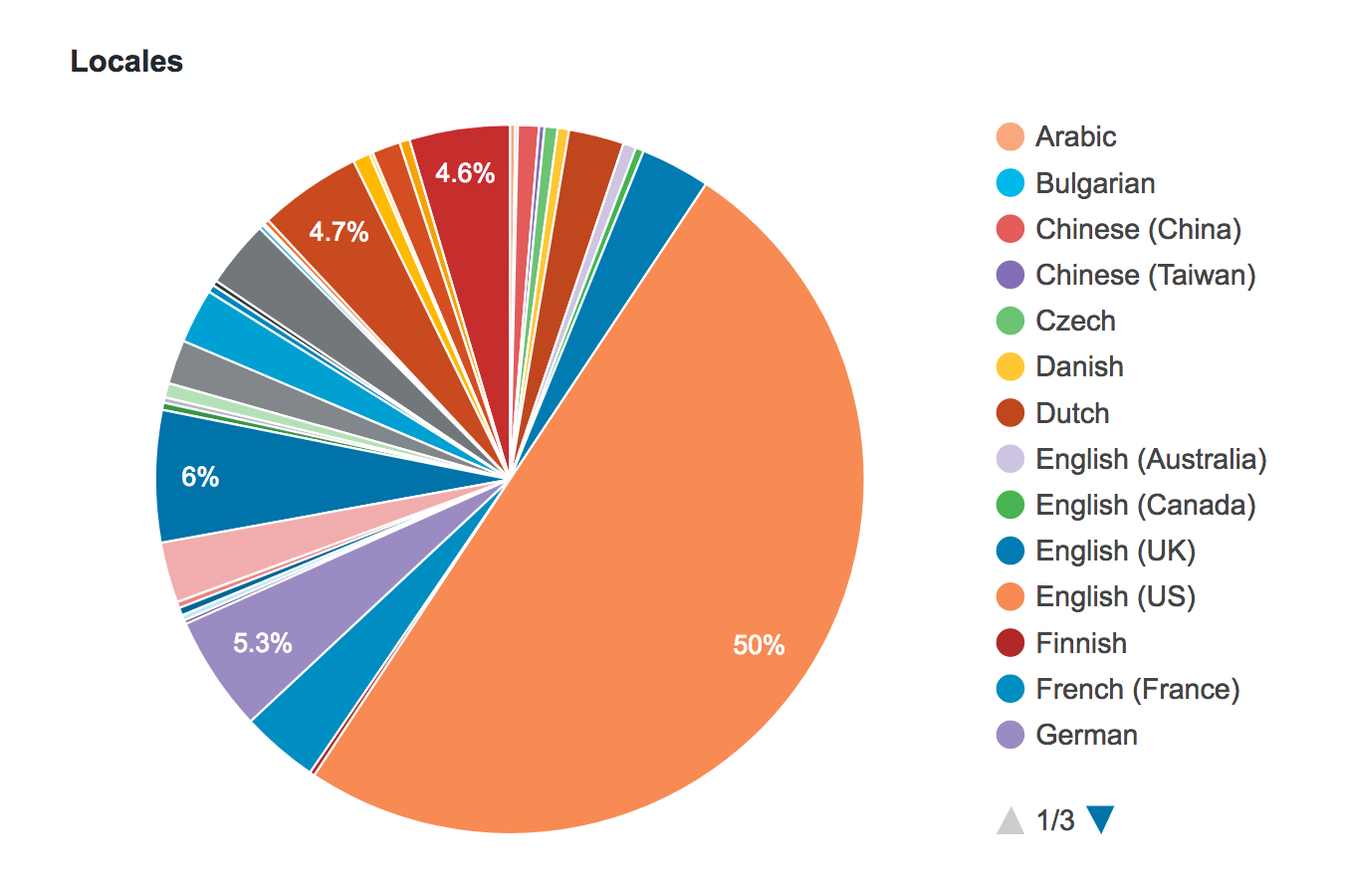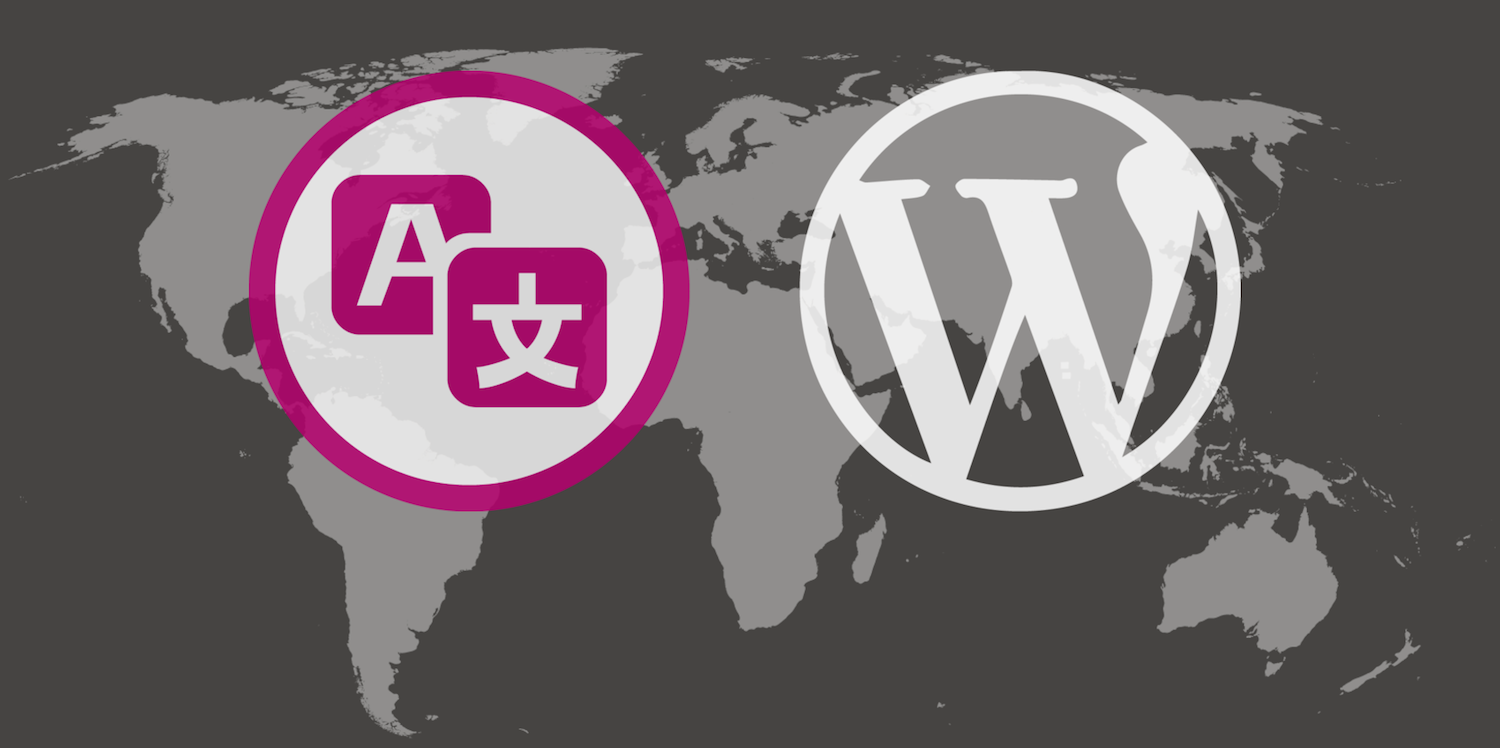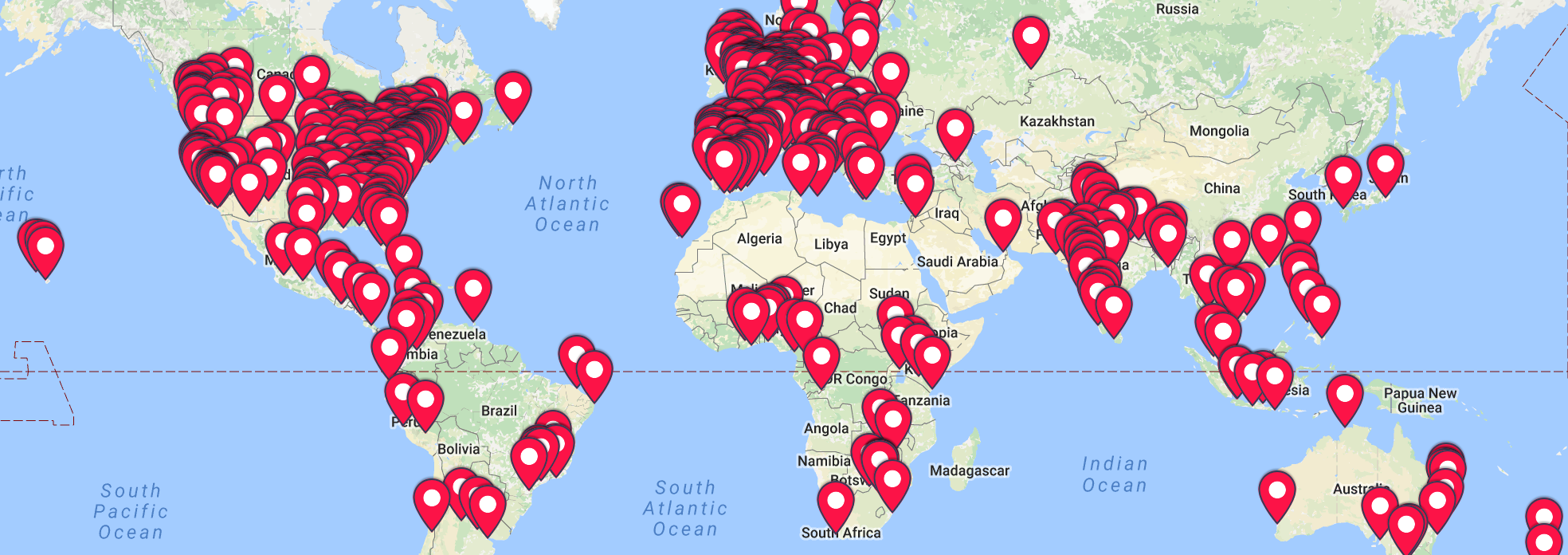The 3rd Global WordPress Translation Day has been set for September 30, 2017. The success of previous events has generated momentum to continue the 24-hour global translation sprints and has also increased the visibility of the Polyglots team’s contributions. These sprints have provided a catalyst for the team’s growth from 5,000 contributors in April 2015 to 17,000 in November 2016. The greater WordPress community has also grown in tandem, as reliable translations are the lifeblood of international WordPress usage.
One way of measuring the growth of the global community is the checking the status of local meetups. After the addition of the dashboard events widget in WordPress 4.8, the community has seen a sharp rise in meetup group growth, according to recent stats from the community team. The widget displays local WordPress events for logged-in users.
“It’s safe to say that the widget has achieved its goals admirably — since WordPress 4.8 was released a little over a month ago, 31 new meetup groups have been formed with 15,647 new members across the whole program,” Hugh Lashbrooke said. “This is compared to 19 new groups and only 7,071 new members in the same time period last year.”
Much of that growth can be attributed to the growth of the international WordPress community, which has continued to advance the concept of regional WordCamps for countries and continents. These include events such as WordCamp Netherlands, WordCamp Europe, and the planned WordCamp Asia, that bring larger groups of WordPress enthusiasts together around a common region.
In 2014, the WordPress community hosted 80 WordCamps in 29 countries. At the conclusion of 2016, there were 115 total WordCamps hosted in 41 different countries.
WordPress’ usage continues to grow every year, and the percentage of non-English-speaking users is also expanding. In 2014, non-English WordPress downloads surpassed English downloads for the first time.
Last July, 53.9% of WordPress sites used the English (US) locale. That number has dropped to 50% as of today, as international usage continues to rise.

Rahul Bansal’s lightning talk at WordCamp Europe identified one example of how the translation sprints are bringing in new contributors in India. In the past, meetup groups have had a problem with retaining new users, who often come to their first meetup lacking both a sense of belonging and confidence in contributing. Bansal and other Polyglots members had an idea to remove this block to contributing by getting new users involved in translating WordPress.
During the last global translation day event, Bansal helped organize a local group to translate WordPress core into Hindi, Marathi, and Gujarati. They also translated the subtitles for the WordPress 4.6 release video. The key was that the leaders did not participate in translating strings but rather focused on guiding new translators – 90% ended up being first-time contributors.
WordPress 4.6 shipped with support for 50 languages and the complete Gujarati translation was added to core just a few days before the release. Its inclusion in the release made WordPress more accessible to approximately 65.5 million Gujarati speakers worldwide.
The 3rd Global WordPress Translation Day falls on the same day that the United Nations has designated as International Translation Day, a new initiative to recognize “the role of professional translation in connection with nations and fostering peace, understanding, and development.”
WordPress has only just begun to explore its potential to democratize publishing and hasn’t even cracked the ice in terms of usage across the world’s most popular languages. Sites using the various Chinese and Arabic locales make up less than 2% of international usage, despite these languages having more than a billion native speakers combined. If WordPress adoption takes off in these parts of the world, it will create a whole new wave of contribution and vastly expand the world market for commercial plugins and themes. The Polyglots team are on the forefront of making this possible.
The first two WPTranslationDay events were held in April and November of 2016. The second event had a 74% increase in participation over the first with a total of 780 translators participating. This year organizers are aiming to host more local translation sprints to surpass the 67 held in November. If you want to join the Polyglots team to help serve WordPress’ growing international community, you can attend or organize one of the local events, watch sessions live on CrowdCast, organize a remote event, become a speaker, or start translating at translate.wordpress.org.


It is surprising WordPress has much use in other languages when you look at how poor the homepages like es.wordpress.org are. (Half the page talks about wp-config.php and mentions WordPress 2.7.)